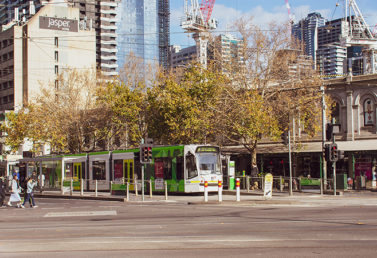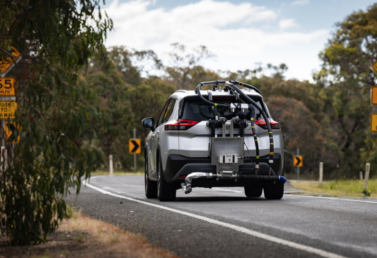A survey of more than 17,000 Australians in the lead up to the federal election has highlighted the different priorities of regional and metropolitan voters.

An election survey of more than 17,000 Australians has highlighted the difference in metropolitan and regional Australia’s road and transport priorities.
The survey – conducted by the Australian Automobile Association (AAA) throughout the election campaign – confirms that traffic congestion rates as the number one priority in metropolitan seats, but the biggest priority in rural and regional areas is road safety.
The survey was conducted with the assistance of the organisation’s state and territory clubs (the NRMA, RACV, RACQ, RAA, RAC, RACT and AANT) who represent 8 million Australians, said AAA Chief Executive Michael Bradley.
“When asked to rate their top transport priorities, 71 per cent of metropolitan respondents singled out issues related to traffic congestion; but in rural and regional Australia, 63 per cent cited road safety,” Mr Bradley said.
The AAA’s nationwide survey was part of the “My Money. My Transport.” campaign, which lets voters communicate directly with local Federal Election candidates on priority road and transport issues in their areas.
Mr Bradley said the “My Money. My Transport.” campaign would continue through to election day. It can be accessed at www.aaa.asn.au/federal-election-2019
“The ‘My Money. My Transport.’ campaign empowers voters to directly tell candidates and political parties how they think their transport-related taxes should best be invested,” he said.
“Over the next four years motorists will pay almost $56 billion of fuel excise alone. That means this year, the average household will pay $1,288 in fuel excise. Australians want more of these funds invested into transport.”
The AAA, on behalf of all state and territory motoring clubs, is lobbying the major parties to give rock-solid commitments in key areas of road safety and road and public transport infrastructure.
“The AAA calls on all sides of politics to re-invest at least half of all fuel excise into land transport infrastructure,” Mr Bradley said.
“We are also demanding a serious commitment to road safety issues, including a comprehensive response to the expert independent recommendations into Australia’s failing Road Safety Strategy. The latest road toll figures reveal that a small decline in road deaths in 2018 has been all but wiped out in the first quarter of 2019. In the three months to March, there were 332 deaths on Australian roads – that’s a 19 per cent spike from the road toll from the last quarter of 2018, which stood at 279 deaths.”
The AAA and its member clubs are calling on all political parties contesting the federal election to commit to:
Media contact:
Jake Smith
0403 466 153
[email protected]
Follow us on Twitter: @AAAcomms
The Australian Automobile Association is the nation’s peak motoring body, representing Australia’s state-based motoring clubs and their 8 million members. The AAA is an apolitical and technology-neutral advocate for federal transport policy that improves safety, affordability, and mobility.

The latest AAA Transport Affordability Index reveals transport cost rises exceeded the consumer price index not only in the September 2023 quarter but also over the 12 months to the end of September.
read more
Initial results of Australia’s first program to test vehicle real-world performance show the cars tested use up to 13% more fuel on the road than they did in lab tests reported by manufacturers.
read more
The quarterly update of the AAA’s EV Index shows the Australian new vehicle market continuing to change.
read more